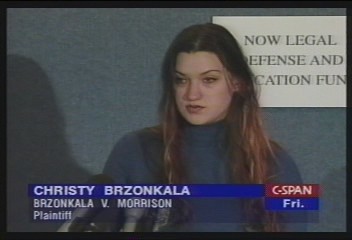Following from my previous post of the SDNY opinion holding that search results are protected speech, which cited my article What Happens if Data is Speech, there is additional coverage.
Alison Frankel has the scoop:
U.S. District Judge Jesse Furman of Manhattan grabbed the chance Thursday to set precedent on a question that has received surprisingly little attention in the courts: Does the First Amendment’s protection of free speech extend to the results of Internet searches? Furman was clearly captivated by the issue as an intellectual challenge, delving into the vigorous academic discussion of the First Amendment and Internet search even deeper than the two sides in the case, the Chinese search engine Baidu and the activists who sued the site for supposedly violating their civil rights by blocking their pro-democracy works from appearing in search results. In a supersmart opinion that Furman seems to have written to be widely read, the judge concluded that when search engines exercise editorial judgment – even if that judgment is just algorithms that determine how results will be listed – they are entitled to free speech protection.
Alison noted how the court relied heavily on the works of Eugene Volokh, Donald Falk, as well as another article by Oren Bracha and Frank Pasquale (though he was more convinced by the former than the latter).
In particular, Furman seems to have been guided by a 2012 piece by Eugene Volokh and Donald Falk, “Google First Amendment Protection for Search Engine Results,” which, among many other points, notes that search engine algorithms “inherently incorporate the search engine engineers’ judgments about what material users are most likely to find responsive.”
Furman also examined a contrary theory suggested by Oren Bracha and Frank Pasquale in a 2008 Cornell Law Review article – that under the Supreme Court’s 1994 ruling in Turner Broadcasting System v. FCC, search engine results are not entitled to full free speech protections. (The Bracha paper actually addressed whether the government ought to be able to regulate search engines, not the issue in the Baidu case, and concluded that the First Amendment does not shield search engines from regulation because under Turner, private interests with quasi-monopoly control cannot impede the free flow of information.) Though Furman said he didn’t need to resolve the scholarly debate, he also said that the Turner precedent is inapt because (among other things) no search engine has monopolistic control over information on the Internet. Baidu can block results on its site, Furman said, but if users are dissatisfied with those results, they can try Google or Bing or another of the many and varied means of retrieving information. “Search engine operators (at least in the United States and given today’s technology) lack the physical power to silence anyone’s voices, no matter what their alleged market shares may be,” he wrote.
The judge spent 7 months researching this opinion. His opinion was really well-thought out.
Baidu’s lead lawyer, Carey Ramos of Quinn Emanuel Urquhart & Sullivan, told me that the judge took seven months to write the opinion, after showing his deep interest in the First Amendment issue. “He wrote an erudite, closely reasoned, compelling decision,” Ramos said. “My speculation is that he wanted to dot the i’s and cross the t’s not only to make sure that it would stand up on appeal, but that it would be broadly accepted.”
More coverage from Forbes, WSJ, Vulture, Engadget, Reuters, and others.
Interestingly enough, the plaintiff makes an important point:
Stephen Preziosi, the lawyer for the plaintiffs, said that they planned to appeal the ruling.
“The court has laid out a perfect paradox: That it will allow the suppression of free speech, in the name of free speech,” he told Reuters.
Protecting search engines, which have no requirement to fairly index case-law, will lead to hiding more speech. This is not limited to Baidu, but can apply, albeit form commercial not political lenses, to Google.
As an aside, it feels so good to write about my scholarly pursuits that are not about Obamacare. Trust me, I do other things too 🙂

